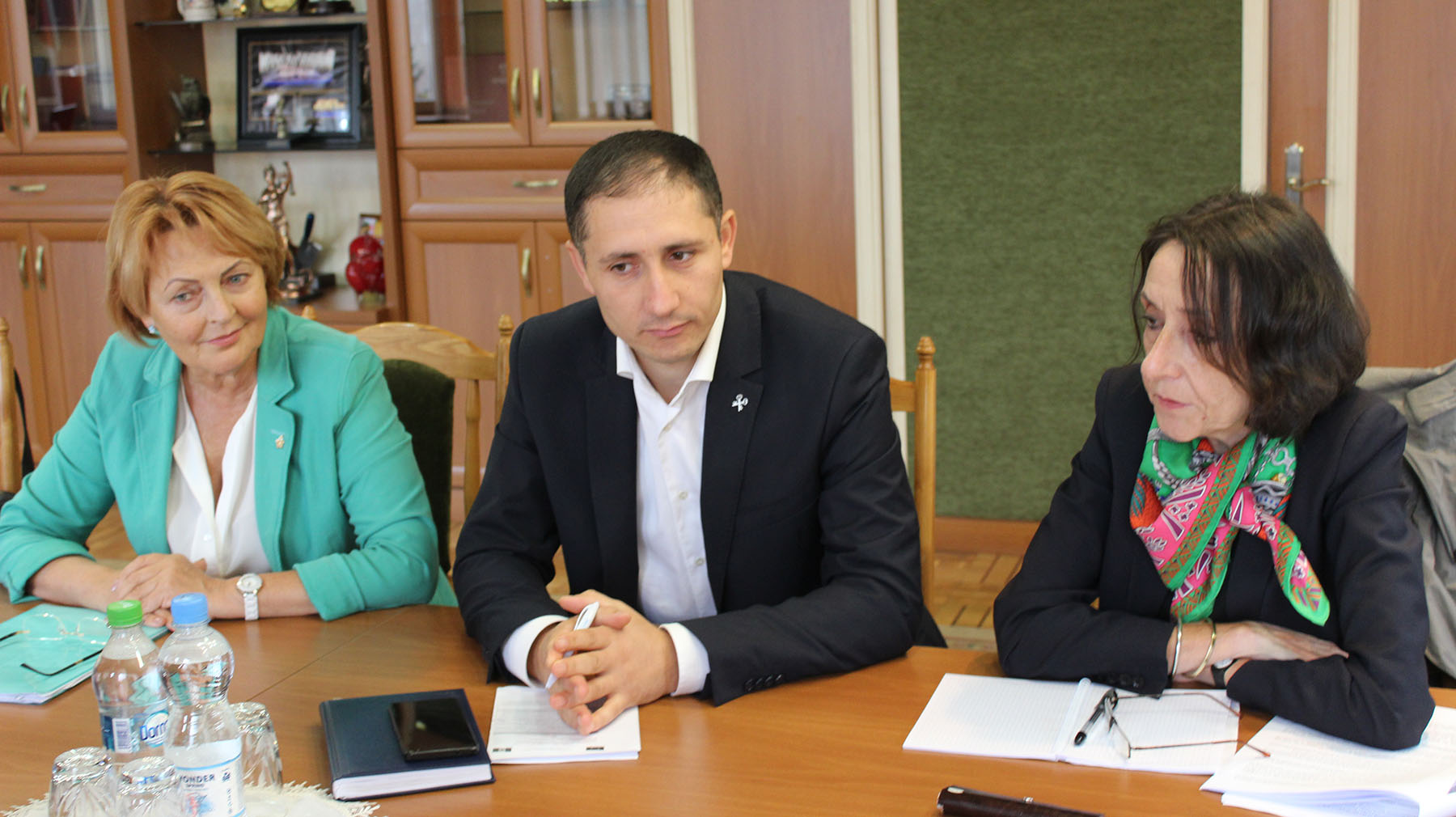CNSM board had a meeting with Frederique Rychener, EU Officer for Enlargement and Neighbourhood Policy
The board of the National Trade Union Confederation of Moldova (CNSM) had on Tuesday, September 20, a meeting with Frederique Rychener, EU Officer for Enlargement and Neighbourhood Policy, responsible for issues concerning employment, accompanied by Nijole Mackeviciene, EU High Level Adviser on Employment Law and Tudor Mancas, Non-Key Expert on Employment Law.
Discussions focused on the key challenges of the labour market, the social situation in the country, occupational policy priorities, labour relations, administrative and institutional capacities. In particular, guests have shown interest in the quality of tripartite social dialogue and work carried out under the National Commission for consultations and collective bargaining, and the work of the State Inspectorate of Labour in the context of the moratorium imposed by the Government on state control and the latest amendments to Labour code.
Oleg Budza, president of CNSM has mentioned that in 2016 there have been some positive changes regarding the tripartite dialogue. “If last year negotiations with the social partners have reached a deadlock, because of change of several Governments, during the current year the situation was rectified. Tripartite dialogue at the national level has been achieved, so we met regularly for meetings to discuss issues that concern us,” said Budza.
Regarding the work of the State Labour Inspectorate, trade union leader said that CNSM strongly opposed the inclusion of this structure under Law 131 on state control and establishing a moratorium on state control because it casts a big risk life and health of employees.
In turn, Sergiu Sainciuc, vice president of CNSM, said that the issues discussed during the meeting related to social dialogue, labour rights, employment, wages, labour motivation, health and safety, gender equality are decent work elements, which are found in the EU-Moldova Association Agreement and Free Trade Agreement. “We ask ourselves: how can we ensure decent work in our country with a minimum wage of a thousand lei? Even if we had more jobs, the compensation is low, and young people are forced to leave the country in search of better living. We do not want anything else than to achieve those contained in national policy documents, which are very good, just that they may remain only on paper,” pointed Sainciuc.
Working visit was held in the context of the first meeting of the EU-Moldova Subcommittee on employment, social policy, equal rights and public health, which was on 21 September in Chisinau.



